July 23, 2024
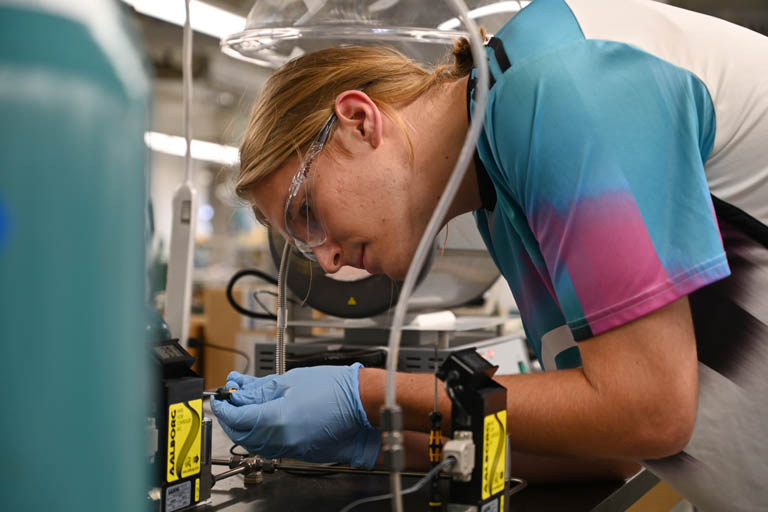
Mizzou Engineering empowers students to explore the world through leading-edge research and provides the necessary tools and guidance. This summer, students from across the U.S. have traveled to campus to take part in National Science Foundation Research Experiences for Undergraduates Sites (NSF REUs) and gain access to those tools while working with our world-class faculty.
“The objectives of an REU are to teach students the basics of the research process, demonstrate the importance of teamwork and the value of different disciplines in collaborative research and provide valuable experience in technical writing and oral presentations, among others,” said Satish Nair, professor of electrical engineering and computer science and Robert H. Buescher Faculty Fellow.
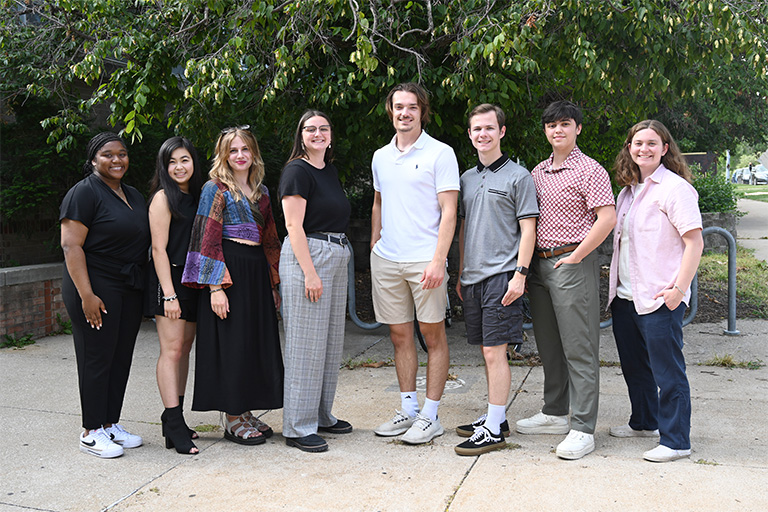
Each REU program is a 3-year renewable initiative that annually recruits 10 undergraduate scholars from across the nation. Nair hosts the NSF REU, “Computational Neuroscience,” which focuses on exploring computational methods to contribute to the global push for research on the brain. Students from diverse backgrounds such as engineering, biology, psychology, physics, and mathematics apply to the program, contributing to interdisciplinary research projects.
“These sites help undergraduate students become problem-solvers and innovative thinkers to solve purposeful and compassionate research problems in healthcare, agriculture, public safety, transportation, education and more,” said Prasad Calyam, Greg L. Gilliom Professor of Cyber Security in electrical engineering and computer science. “They’re investigating methodologies to create solutions that lead to improvement in quality of life, and significant economic growth.”
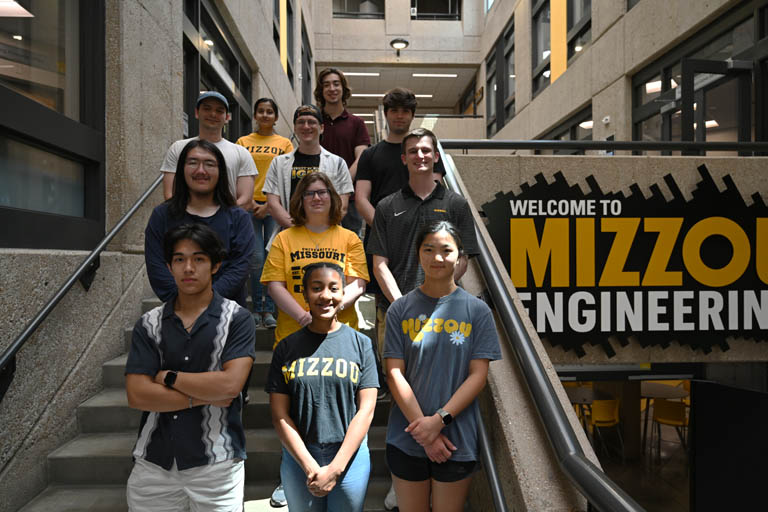
Calyam, director of the NSF REU site, “Consumer Networking Technologies,” which is now in its 17th year, shared that students in his program are working on research problems in diverse innovative fields, including artificial intelligence (AI), mobile sensing & environment recognition, software-defined networking and social virtual reality (VR). The projects have applications in addiction research, drones, cybersecurity and VR learning environments.
Mizzou student Derek Nissen chose to apply to the REU to enhance his software development skills.
“I have been working with a partner to develop a solution that simplifies the data analysis process of mobile sensor data (phone GPS and accelerometers) using large language models,” Nissen said. “The experience has revealed to me the importance of research and how it can leave a profound impact on society and I’ve enjoyed exploring a concept that I wouldn’t typically encounter in school.”
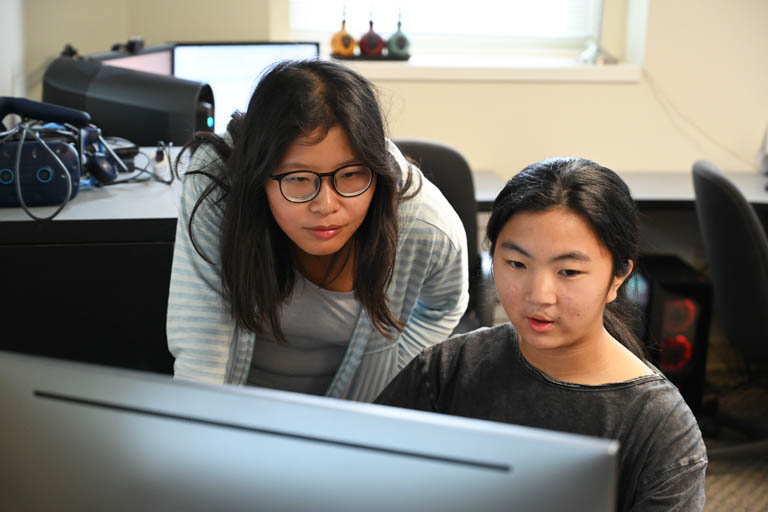
REUs provide students with unique opportunities to explore concepts beyond traditional textbook learning, offering experiences not typically found in lab classes. At “Creative Approaches to Materials Design and Processing,” Co-Directors Reginald Rogers and Matt Maschmann are leading students through projects exploring materials, in areas ranging from cell cultures and biomaterials to carbon nanotubes and polymers.
“This work is important for both engineers and non-engineers because of how the research will inform policy and translate to medicine, health care, and other educational avenues,” Rogers, associate professor of chemical and biomedical engineering, said.
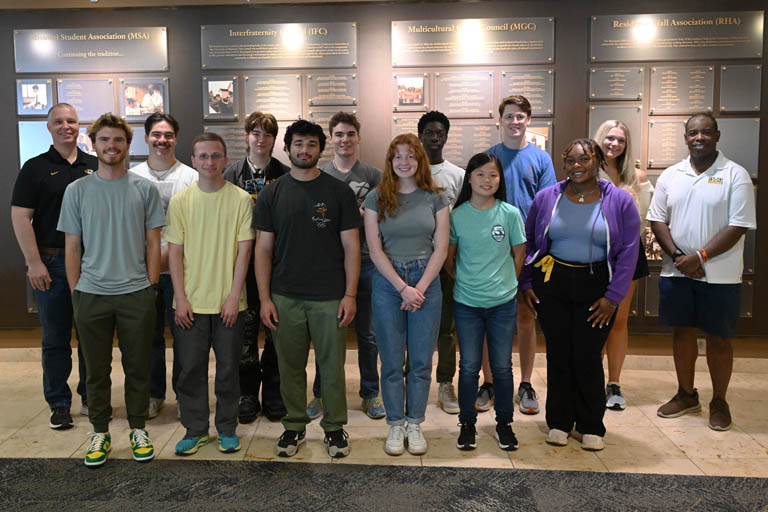
Rogers emphasized that REUs not only impact various fields beyond engineering but also offer mutual learning opportunities for both students and faculty.
“We are providing students an opportunity to see into the future of science and engineering,” Rogers said. “At the same time, students are giving us insight into knowledge that we may not have based on our understanding of current systems.”
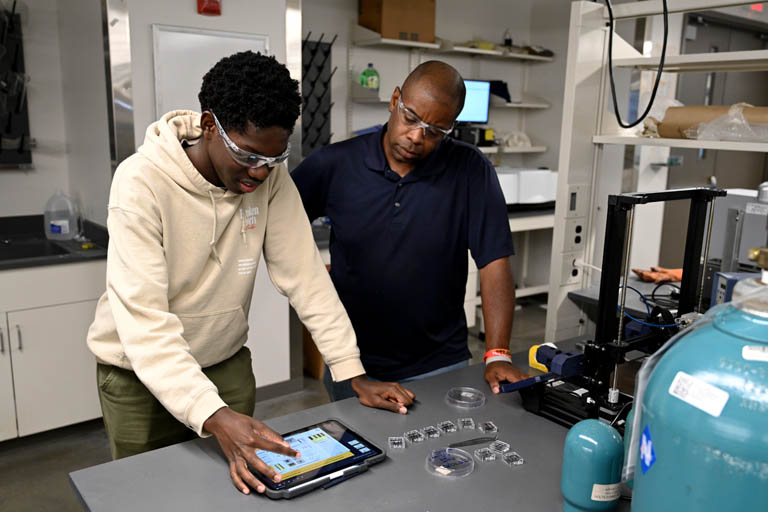
REUs focus on expanding knowledge, providing students with opportunities to work in rapidly growing fields such as AI. With the explosion of technology companies wanting to get in on the field, they’re looking for more engineers with experience using the tech to develop AI applications.
Suchi Rajendran is the director of the REU site, “Research on Prescriptive Analytics for AI-enabled Operations Engineering,” and her goal is to train students to conduct research on state-of-the-art prescriptive analytics and develop AI-enabled solutions for real-world applications in service, manufacturing and agriculture.
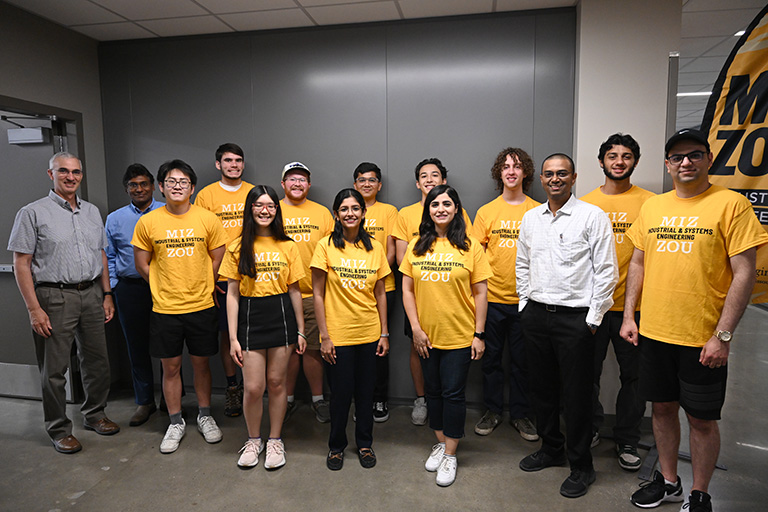
“Our REU program aims to provide students with hands-on research opportunities to develop and apply advanced analytical models and techniques,” Rajendran said. “Participants mostly work on real-world projects, gaining skills in data-driven decision-making, optimization and the implementation of prescriptive solutions across various industries.”
Engaging with emerging technologies is crucial for training engineers for the workforce and academia. This hands-on learning approach, known as the Missouri Method, ensures Mizzou Engineering REUs effectively prepare students for successful careers.
“I highly recommend the REU program to other students,” Nissen said, “as it allows you to dive deeper into a complex topic, improving your abilities as a scholar and future job candidate.”
At Mizzou, our passion for discovery powers a culture of truth-seeking. Learn more about REUs at Mizzou Engineering.